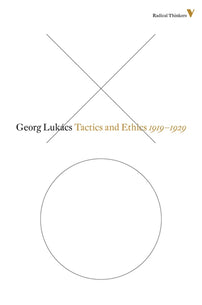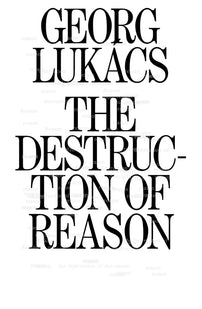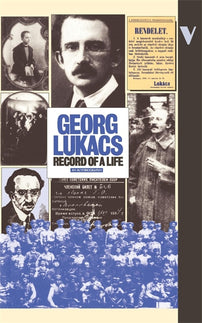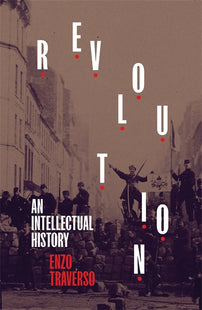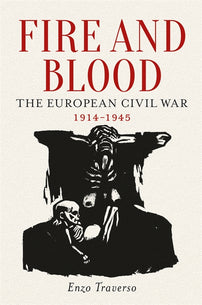Traverso and Lukács: notes for discussion
Placing The Destruction of Reason among the classics of Marxism, Enzo Traverso posits the discussion of Lukács’ most controversial book on the right track.
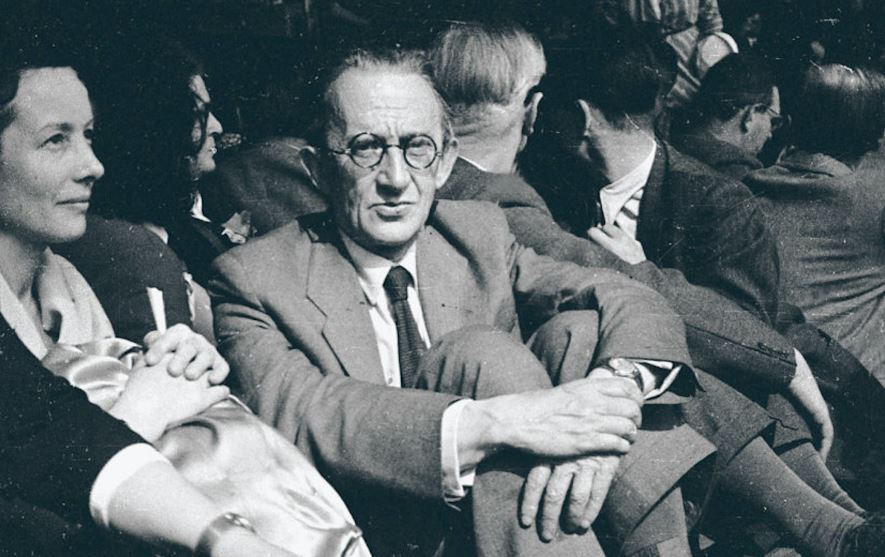
The publication of the new English edition of Georg Lukács's The Destruction of the Reason deserves our attention as it brings back into print a text that has never earned great favour in the British market –– as demonstrated by its late translation (Palmer’s version for Merlin Press, considered here, dates back to 1980). Moreover, this newly published edition is introduced by a long and interesting essay by Enzo Traverso, whose contribution offers many points for discussion, which will be the main theme of the present article.
In his essay entitled “Dialectic of Irrationalism: Historicizing Lukács The Destruction of Reason”, Traverso, historian of high value, attempts to contextualize Lukács’ work. Traverso’s peremptory opening statement is that "the time has come to rediscover The Destruction of Reason, undoubtedly one of Georg Lukács’s most controversial books". The work "deserves to be reappraised beyond its demoniac and dark aura, and to be given its proper place in the history of twentieth-century critical thought". Such value judgement is reiterated at the end of the discussion, where Traverso asserts that we must "include the book among the greatest intellectual achievements of the past century". These statements must be examined carefully and with accuracy, as in his contribution, the author does not spare critical, even sharp observations towards Lukács’ work.
Traverso places the volume in the third phase of Lukács’ intellectual production, namely the Stalinist one, which spans from the ‘30s to 1956. The first phase of Lukács’ intellectual work is pre-Marxist, and it encompasses the Hungarian philosopher’s early works up until the Theory of the Novel; the second phase of his thought is more “extremist”, as expressed in History and Class Consciousness and his other militant works written in the ‘20s. There is also a fourth phase in Lukács’ production, post-1956, when he publishes masterpieces like The Ontology of Social Being and devotes himself to the issues of "everyday democracy". The volume itself is defined as a "mirror of Stalinism". To clarify, such assertion refers to the cultural patchwork in which the volume was conceived and published, emphasizing - as Lukács does too in his preface - how the text takes a distance from the principles of Zhdanovism and Marxist-Leninism, which reduced the history of philosophy to a clash between materialism and idealism. This further contributed to complicating the reception of the work in the academic environments of Eastern Europe. The Destruction of Reason is an “anti-fascist popular front” text: initially conceived in the ‘30s, the climate surrounding its drafting is that of the temporary alliance between liberalism and Communism against Nazi-fascist barbarity. Published in 1954, the volume arrived at the end of a debate that was almost over, and that had given way to the Cold-War atmosphere. Such historical placement explains why the book received negative judgements supported by opposing views and reasons.
One of the most precious sections is the reconstruction of the debate from the immediate post-war period regarding the “German catastrophe” (from the title of a famous book by Friedrich Meinecke). The German Sonderweg, Germany’s singular path towards modernization, was judged with very negative tones, and it was reinterpreted as a “guilt” (Jaspers), seen in its “demonic” aspect (Mann), “mythical” (Cassirer), scrutinized in its historical or ideological roots. Traverso recalls and upholds Domenico Losurdo’s view, sceptical of Lukács’ Marxian re-reading of Sonderweg. While the Hungarian philosopher correctly retraces the roots of dialectical thought in the European revolutionary context, in The Destruction of Reason and in other works like Young Hegel, he is not as exhaustive in his examination of international references regarding irrational thought. For instance, he does not take into consideration De Maistre or British racist thought.
Traverso’s historical treatment is precise and restores greater depth and colour to the author’s thought, especially in contrast to what other contemporary interpreters of Lukács attempt to do, proposing a “pure” figure of the Hungarian philosopher, thus operating a flattening of his thought through an ahistorical twist. Instead, Lukács is a “problematic” thinker, as he always took a stand in the decisive turning points of the 20th-century Communist movement. This was the point stressed by Guido Oldrini when he highlighted that Lukács had looked at the issues of Marxism from 1900. His peculiar “historicism” deserves to be considered in its entirety as Traverso does, and even he repeats multiple times that he does not intend to “absolve” or “reintegrate” anyone. Honouring Lukács’ figure means applying to Lukács his own method, therefore considering «every fruitful and really philosophical proposition […] [as] concrete». It means identifying the function of an author’s work within the concrete context of the history of ideas, and of the political clash in philosophy, also disregarding the subjective opinion that he has about himself and his work.
In this sense, it is possible to agree with Traverso’s statement, when he suggests reading "this book […] as the philosophical mirror of a European civil war" and considering this work "avoid[ing] unilateral approaches: on the one hand, it means submitting it to the test of a severe criticism; on the other, it means seizing, between the lines of its peremptory assessments, the echoes of Stalingrad". This essential point had already been understood by operaisti, who, for this reason, did not look favourably at the text. As Traverso recalls, in Italy, the latter had been received in a more favourable manner in comparison with the rest of Western Europe, as it was considered similar to the “Italian path towards docialism”.
[book-strip index="1" style="display"]On the level of content, the introduction significantly emphasizes volume’s unilateralisms and omissions. He underscores the presumably teleological character of the idea of reason presented in the book, which seems a progressive line from Hegel to Soviet socialism, without considering any other way, be it Neo-Kantian liberalism from the Marburg School (Natorp, Cassirer) or some other current of heretical Marxism. Specifically, albeit in much more faded terms than Adorno’s criticisms, Traverso endorses the Frankfurt critique according to which Lukács does not view reason itself dialectically, the complex dynamic of barbarity and culture examined in a work like the Dialectic of Enlightenment. This does not enable the author of The Destruction of Reason to consider usable tools to enact an anti-capitalist critique also in non-progressive philosophies, something that Adorno attempts to do in his Prisms. While this objection is grounded, it goes beyond the original aim of the book which, as Lukács affirms, is not to write a "history of philosophy". Perhaps, the absence of historicization of rationalism parallel to that of irrationalism identified by Traverso can be explained with similar reasons. Furthermore, if it is true that, for Lukács, rightly or wrongly, this can be reduced to the line from Hegel to Marx, references - of course, definitely too scant - can be found in the very first pages of the chapter on neo-Hegelianism. Here, before examining 20th-century neo-Hegelianism, the Hungarian author briefly surveys the evolution of 19th-century Hegelianism and hints at the qualitative leap between Hegelian and Marxian dialectics.
Another interesting aspect to consider is Traverso’s analysis of contemporary schools of thought. He sees neoliberalism as a return to classical conservatism, which deletes the future, but is not stricto sensu irrationalist, given its insistence on human rights and on a formalist defence of democracy against external enemies, potentially like Chinese Communism or Islamic fundamentalism. He compares this Right to 20th-century Kulturpessimismus. It is very likely that Lukács would probably see a despairing and irrational element in this form of pessimism too.
As a researcher of the Right’s movements and of neo/post-Fascism, Traverso sees a theoretical and structural weakness of these fringes in their inconsistency. The alt-right and QAnon are clearly a form of irrationalism, but, at the same time, they do not express a coherent ideology. It is still necessary to ask whether this milieu can become the incubator for a more structured future system of thought, or whether such a system of thought is not superficial on the current ideological level of the development of late capitalism.
In the last pages, the author of the introduction denounces the limits of critical thought in the last decades. Deprived of an idea of emancipation, the latter risks offering a monolithic vision of the West, almost opposed to the Orientalism investigated by Edward W. Said. If they develop a critique of the factors of oppression present in dominant Western thought, postmodernism, deconstruction, postcolonial studies, some currents of feminism risk providing a flat and shadeless vision of the West.
Ultimately, Traverso seems to suggest an “ecumenical” reading that, stemming from a Marxist vision of the world, recognizes the objective elements from other critical currents of capitalism, such as the strong ecologist element marking Romantic anti-capitalism which, in his view, cannot be rejected a priori. Yet, aside from the possible divergent views, Traverso has the merit of positing the discussion on a work like The Destruction of Reason on the right track, subtracting it from the easy excommunications and placing it among the classics of Marxism. In an environment like the Anglo-American one, this point is more than enough to appreciate his contribution fully.
Originally published at: https://www.marxismo-oggi.it/recensioni/libri/500-traverso-e-lukacs-note-per-un-dibattito

